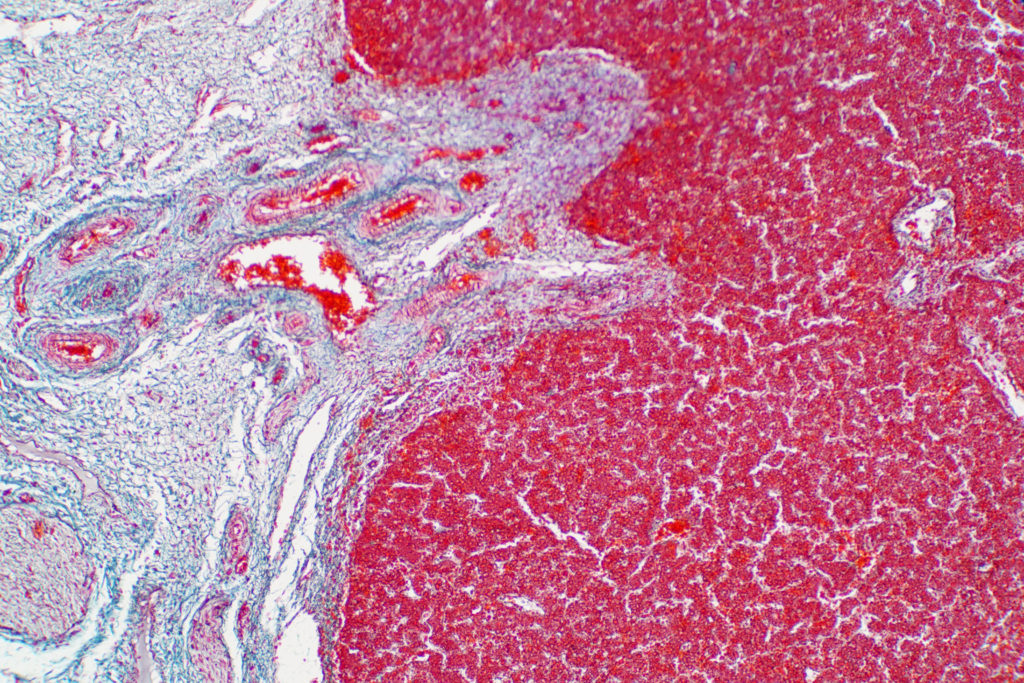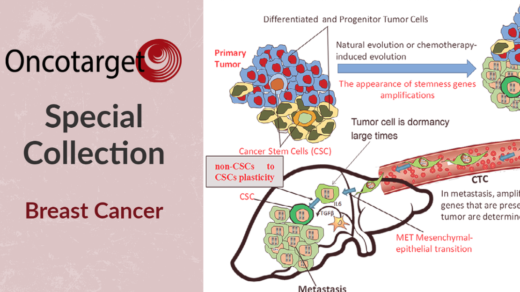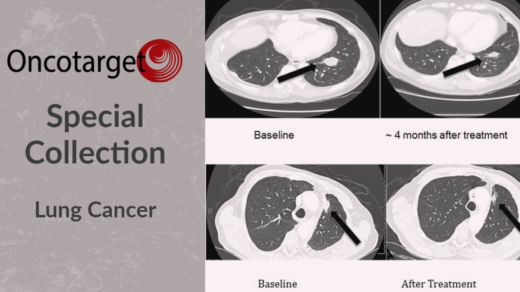In this trending study, the association between IGF/CTP composite scores, overall survival, and progression-free survival of hepatocellular carcinoma patients treated with sorafenib was investigated.

The Trending with Impact series highlights Oncotarget publications attracting higher visibility among readers around the world online, in the news, and on social media—beyond normal readership levels. Look for future science news about the latest trending publications here, and at Oncotarget.com.
—
Sorafenib was the first systemic therapy approved to treat Child-Turcotte-Pugh (CTP) class A patients with advanced hepatocellular carcinoma (HCC). However, there are no biomarkers known to predict survival, treatment outcomes, or to guide this HCC systemic therapy. The insulin-like growth factor 1 Child-Turcotte-Pugh (IGF-1/CTP) composite score has emerged as a hepatic reserve assessment tool—and potential prognostic biomarker.
“Accurate assessment of the functional hepatic reserve is important to the prognostic and treatment prediction for patients with liver disease [1, 2].”
Researchers from the University of Texas MD Anderson Cancer Center, Massachusetts General Hospital, and Harvard Medical School conducted a study to assess the association of the IGF/CTP score with overall survival (OS) and progression-free survival (PFS) of HCC patients treated with sorafenib. Their paper was published in Oncotarget’s Volume 12, Issue 8 and entitled, “Insulin-like growth factor 1/Child-Turcotte-Pugh composite score as a predictor of treatment outcomes in patients with advanced hepatocellular carcinoma treated with sorafenib.”
The Study
The majority of circulating insulin–like growth factor (IGF) is synthesized and secreted by the liver, and levels of IGF dramatically decrease in chronic liver disease and HCC. IGF can be a helpful tool to determine the prognosis of patients with advanced HCC while undergoing treatment with sorafenib. Researchers also use the Child-Turcotte-Pugh (CTP) qualitative scoring system to assess severity of liver cirrhosis, hepatic reserve, guide treatment decisions, and to stratify patients with HCC into three groups (A, B, and C). CTP class A has a better prognosis compared to classes B and C.
“Assessing liver reserve in HCC is of a great value as a tool for stratification of patients in clinical trials as well as to predict HCC outcome and guide therapy decisions in routine practice [28].”
In the researchers’ prospective study, 171 patients with HCC from the University of Texas MD Anderson Cancer Center were screened and included in this study. Of the patients, 116 were classified in CTP group A. Patient IGF/CTP scores were calculated and the researchers used the Kaplan-Meier method and log-rank test to estimate and compare the time-to-event outcomes between patient subgroups. Based on CTP and the IGF/CTP scores, researchers reclassified group A patients into AA and AB risk groups, which differed significantly in terms of OS and PFS. The researchers followed up with all patients in the study until disease progression or death. Unfortunately, during the follow-up period, 100 patients passed away.
“After IGF/CTP scoring, 87 of 116 CTP class A patients were reclassified as IGF/CTP-A (AA) and 29 patients were reclassified as IGF/CTP-B (AB) (Supplementary Table 1).”
Results & Conclusion
“Our study is the first prospective validation of the IGF/CTP scoring system association with the outcomes among patients with HCC treated with sorafenib.”
This study supported the researchers’ hypothesis that the IGF/CTP score is capable of further distinguishing and refining CTP class A patients. However, for CTP class A patients, due to limited power of the study, researchers were unable to meet the threshold for statistical significance for the OS and PFS durations of the reclassified groups AA and AB.
“Although our study was not powered to determine the predictive value of the IGF/CTP score in regard to median OS and PFS durations in CTP class A patients treated with sorafenib, our subset analyses of OS and PFS at different timepoints were statistically significant and, if independently validated, could change the standard approach to assessing hepatic reserve in patients with HCC.”
Click here to read the full scientific study, published by Oncotarget.
—
Oncotarget is a unique platform designed to house scientific studies in a journal format that is available for anyone to read—without a paywall making access more difficult. This means information that has the potential to benefit our societies from the inside out can be shared with friends, neighbors, colleagues, and other researchers, far and wide.

For media inquiries, please contact media@impactjournals.com.



